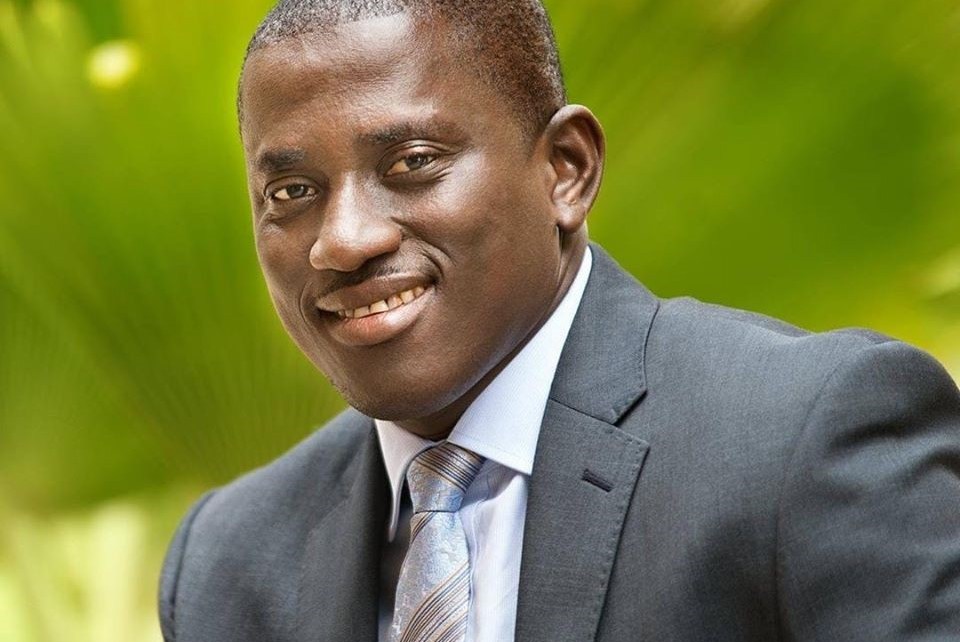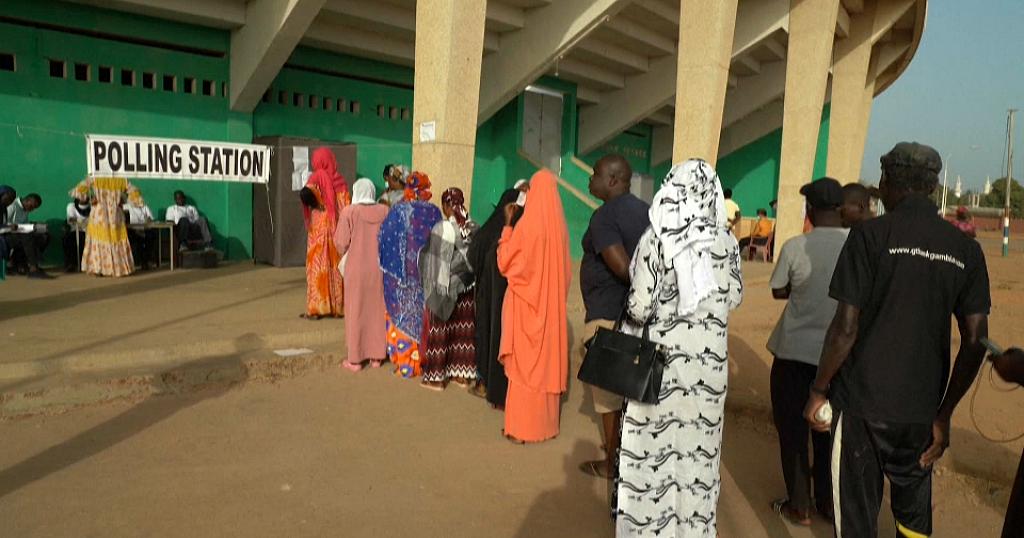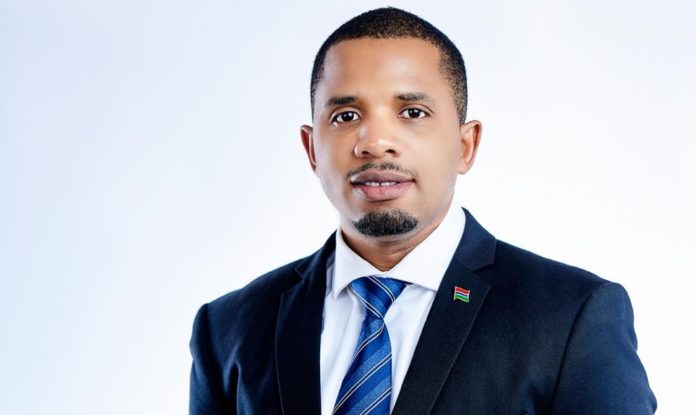The Attorney General of The Gambia has said that Momodou Sabally’s application seeking a court order directing the Independent Electoral Commission (IEC) to accept his nomination lacks merit and urged the court to reject it.
This was mentioned in the Attorney General’s affidavit opposition sworn to by one Lamin Trawally, a pupil lawyer.
IEC have also opposed Sabally’s application as they submitted that most of Sabally’s statement are ‘totally false and misleading.’
Momodou Sabally, a former Secretary General and Head of Civil Service under the former regime wants the High Court to issue an order directing the Independent Electoral Commission to accept his nomination as a candidate for the Busumbala constituency for the April 2022 National Assembly elections.
His nomination was on Thursday, 10th March 2022 and was rejected by the Returning Officer for the Brikama Administrative Area. On appeal to the Commission, the IEC upheld the decision of the Returning Officer.
The Economist now wants the High Court to set-aside both decisions of the Returning Officer and that of the IEC. He wants the court to order the Commission to accept his nomination because the decision to reject him was incorrect.
Sabally said the Returning Officer’s decision in rejecting his nomination was premised on his perception that there is a Commission of Inquiry finding against him which makes him ineligible to contest for the April 2022 National Assembly elections.
Sulayman Joof, the Director of Administration at the IEC in his affidavit opposition indicated in his statement that Sabally’s statement was denied and regarded it as ‘false and misleading’. Joof said the Returning Officer acted in line with relevant laws governing the decision to reject Sabally’s nomination for the April 2022 elections. The Attorney General, in this case, admitted what Sabally wrote regarding the premise of his rejection.
Sabally said the Returning Officer did not state that he did not fulfill any criteria for nomination. Joof for the IEC said Sabally’s statement was ‘totally false and misleading’ as he denied the statement. Joof added that he (Sabally) did not fulfill the constitutional requirements for the nominations of candidates for National Assembly elections and this was clearly stated in Sabally’s exhibit marked ‘MS2’. The Attorney General also submitted that Sabally was informed that he did not meet the requirements for nomination for National Assembly elections in terms of section 90 subsection 1 paragraph (e) of the Constitution, which outlines the disqualification provisions for the office Sabally was seeking to be nominated.
Sabally said the Returning Officer rejected his nomination “no sooner than my submission of the papers. He did not take his time to examine my papers thoroughly.”
Joof for the IEC denied Sabally’s describing it as “totally false and misleading.” Joof said the Returning Officer took his time to examine all nomination papers submitted by Sabally like he did with all other candidates who submitted their nomination papers. He added that the Returning Officer rejected Sabally’s nomination after he was satisfied that he did not fulfill the legal requirements to be nominated to contest for membership of the National Assembly.
The Attorney General submitted that Sabally’s nomination papers were received in line with laid down procedures. Upon examination of his papers, the Attorney General said he was informed that he did not fulfill the requirements to contest in the National Assembly elections.
Sabally said: “When I insisted that the 1st Respondent (Returning Officer) must give me tangible reasons as to the rejection of my nomination papers, he (the Returning Officer) failed to furnish me with any reason or justification other than he rejected my nomination.”
Sulayman Joof for the IEC denied Sabally’s statement as he labeled it as “totally false and misleading”. Joof submitted that after rejecting Sabally’s nomination, he was immediately given the reason for his rejection and was also given Form 3. Joof referred Sabally to his own statement at paragraphs 10 and 11, where he supposedly made the admission that he was informed by the Returning Officer.
The Attorney General also held that Sabally’s nomination papers were received in line with laid down procedures. Upon examination of his papers, the Attorney General said he was informed that he did not fulfill the requirements to contest in the National Assembly elections.
Sabally said: “At the material time I submitted my nomination papers to the 1st Respondent (the Returning Officer), his attitude in terms of the way and manner in which he treated my nomination, suggest to me, based on my first-hand observation, that he had already predetermined the fate of my application even before I submitted my application.”
Joof denied Sabally’s statement describing it as “totally false and misleading”.He asserted that Sabally’s nomination papers were examined and he was informed the reason for his rejection which was he did not fulfill the requirements to contest in the National Assembly elections.
Sabally said: “Both the 1st and 2nd Respondents (the Returning Officer for Brikama Administrative Area and the Chairman of IEC) who relied on section 90(1)(e) did not state that the Commission of Inquiry has recommended that I be banned from holding public office by reason of having acquired assets unlawfully or defrauded the State or misused or abused my position or willfully acted in a manner that is prejudicial to the interest of the State”.
Sulayman Joof denied Sabally’s statement as he reiterated his usually rebuttal that it is “totally false and misleading”. Joof said the Returning Officer and the Commission relied and enforced the said provision of the Constitution as it regard the finding and recommendation of the Janneh Commission of Inquiry on Sabally.
The Attorney General said Sabally was informed that as a result of the findings and recommendations of the Commission of Inquiry on him banning him from holding any public office in The Gambia as a result of his financial dealing with former President Yahya Jammeh, he was not qualified to contest for the National Assembly elections.
Sabally said, “The recommendations of the Commission of Inquiry do not contain banning order for any specific reason and I verily believe that this cannot be inferred from a general statement.”
Joof for the IEC denied Sabally’s statement as he portrayed it as “totally false and misleading.” He said the recommendations of the Commission on page 207 paragraph (j) contained banning order for specific reasons that can be unequivocally inferred from the said portion of the Commission of Inquiry Report which was further restated and confirmed in the Government’s Whitepaper.
The Attorney General denied Sabally’s statement saying “The Report of the Janneh Commission of Inquiry found the Applicant (Momodou Sabally) liable for facilitating theft of public funds and as such recommended, he be banned from holding public office for life.”
Sabally said the decision of the Returning Officer and the Chairman of IEC were not supported by the recommendations of the Commission of Inquiry.
Sulayman Joof denied Sabally’s statement saying it was “totally false and misleading.” He submitted that the decisions were based on the findings and recommendations of the said Commission. Like Mr Joof, the Attorney General submitted that the decision was based on the findings and recommendations of the Commission of Inquiry.
Sabally said the Returning Officer and Chairman of IEC were wrong in rejecting his nomination based on section 90 subsection 1 (e) as the Whitepaper and the Report of the Commission manifest.
Joof for the IEC denied Sabally’s statement describing it as ‘totally false and misleading.’Joof said the decision were reached pursuant to the relevant constitutional provisions and it is manifested in the Commission of Inquiry Report. He added that the Returning Officer and the IEC were not wrong in reaching that decision as opposed to Sabally’s claim.
The Attorney General denied Sabally’s statement saying ‘the decision to reject the Applicant’s nomination is based on Section 90 (1) (e) of the Constitution which is in line with the law.’
Sabally said the Returning Officer and the Chairman of IEC misapplied the provisions of the 1997 Constitution and as a result arrived on a wrong decision.
Joof for IEC denied Sabally’s statement saying the Returning Officer and the Commission did not wrongly apply the provision of the Constitution. He added that the decision to reject him was right for all intent and purpose.
The Attorney General denied Sabally’s statement as he reiterated that ‘the decision to reject the Applicant’s nomination is based on Section 90 (1) (e) of the Constitution which is in line with the law.’
Sabally said it is fair, just and in the interest of justice that the reliefs sought be granted. He added that there is merit in the application in his application adding it won’t prejudice the Commission.
On the merit of Sabally’s application, the Attorney General said it is in the interest of justice that the application is refused.
For Joof, the application was made in bad faith and if granted, would prejudice the Commission. He said the application is vexatious and frivolous as well as an abuse of court process. He added that Sabally is not entitled to any of the reliefs sought.
The case adjourned to Tuesday, 29th March at 12:30 pm for continuation.





